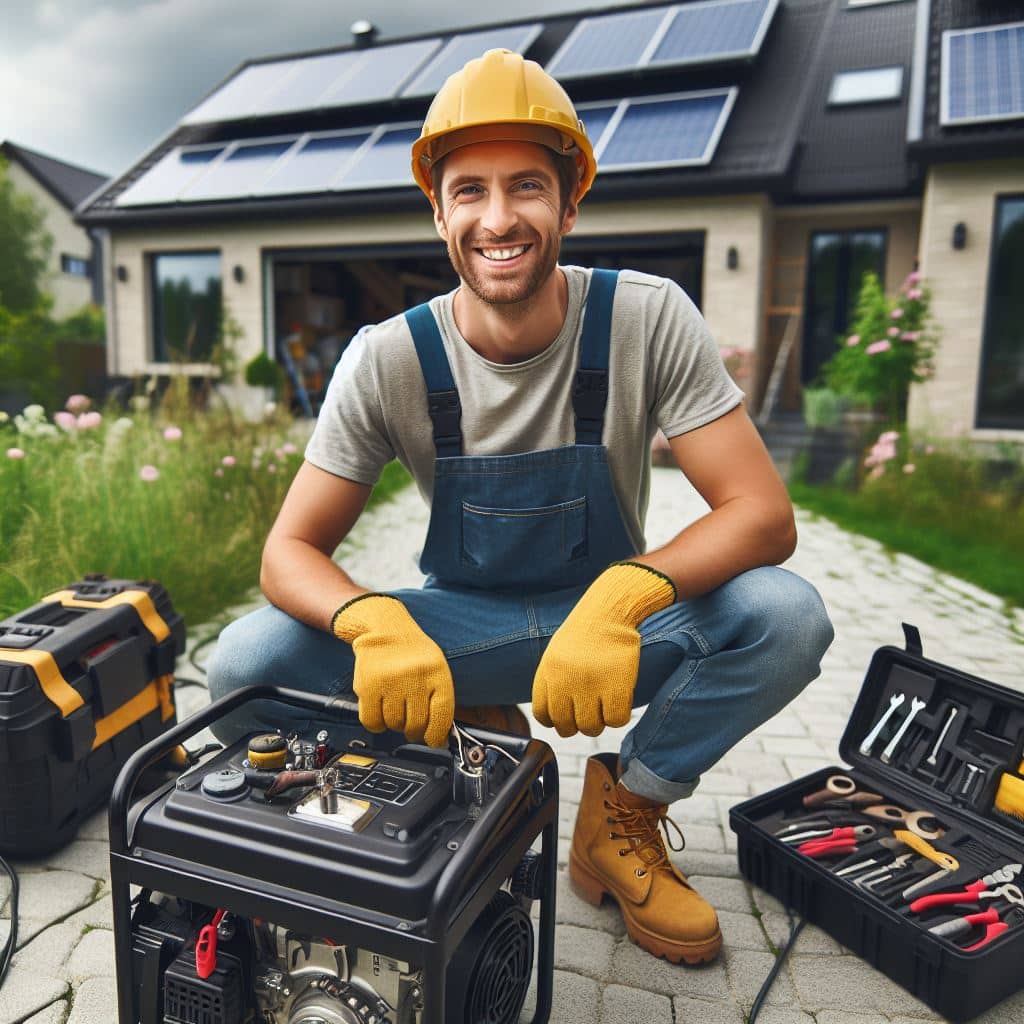Determine Your Power Requirements
So, your power keeps going out and you’re tired of being stuck in the dark. A whole house generator seems like the perfect solution, but how do you know what size you need for your home? Don’t worry, we’ve got you covered. Choosing a generator isn’t rocket science but there are a few things you should consider. The last thing you want is to drop a bundle of cash on a generator that’s too small to keep the lights on or so huge it could power a small city. You need a generator suited to your needs that will automatically kick in when the power cuts out so you can go about your business like nothing happened. In this article, we’ll walk you through determining your home’s power requirements and selecting the perfect sized generator to keep things running smoothly no matter what the weather throws at you. By the end, you’ll be a pro at generator sizing and know who to contact for general home generator maintenance.
Calculate the Right Generator Size for Your Home
Before investing in a whole house generator, you’ll need to determine how much power you actually need. The size and type of generator depends on which appliances and equipment you want to power.
Calculate your essentials
What are the bare necessities you can’t do without? Things like:
– Lights, fans, and small electronics
– Refrigerator and freezer
– HVAC system for heating and cooling
– Medical equipment if needed
– Well pump if you have a private well
Add up the wattages of these crucial items to determine your minimum power needs. For most homes, at least a 5,000 to 10,000 watt generator should cover the basics.
Factor in extras
Do you want to power more than just the essentials? Consider things like:
– Electric stove, oven, and microwave for cooking
– Washer and dryer
– Home office equipment like computers, routers, and modems
– Entertainment systems such as TVs, gaming consoles, and stereos
Each of these can draw several thousand more watts. Choose a generator size that can handle the wattages of your must-haves as well as some extras. Aim for at least 15,000 to 20,000 watts to power partial home use.
Think fuel type
The two most common types are gasoline and propane. Gasoline is convenient but propane has a longer shelf life. Propane also produces fewer emissions. Choose a generator that uses the fuel you prefer and that’s readily available in your area.
With some calculations and forethought about your needs and wants, you can choose a whole house generator that keeps your home fully powered in any situation.
Regular Maintenance Keeps Your Home Generator Running Smoothly
To determine the right size generator for your home, you’ll need to calculate your total running wattage. Add up the wattage of essential circuits like the refrigerator, furnace, water heater, lights, and medical equipment. For the average household, a generator between 5,000 to 15,000 watts should do the trick.
Next, decide if you want backup power for the whole house or just critical circuits. A whole house generator will power everything, but costs more and requires professional installation. A smaller portable generator can run key circuits through a manual transfer switch, but you’ll need to connect devices one at a time.
Think about fuel type too. Gasoline generators need refueling and produce fumes, but diesel and propane models can run for days. Consider your local fuel availability and storage options.
Once you know your power needs and fuel preference, you can choose a generator size that will keep you comfortable during an outage without overspending. Look for a model with at least a 5-year warranty from a reputable brand. Buy from a dealer who can service your generator and properly install a whole-house model. Maintaining your generator is key. Test it monthly, change the oil regularly, and run it under load at least once a year. When the power goes out, you’ll be glad you took the time to select a generator perfectly suited to your home. Staying prepared means peace of mind during an emergency.
